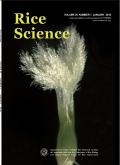Rice Cultivation under Film Mulching Can Improve Soil Environment and Be Beneficial for Rice Production in China
IF 5.6
2区 农林科学
Q1 AGRONOMY
引用次数: 0
Abstract
Rice cultivation under film mulching is an integrated management technology that can conserve water, increase soil temperature, improve yield, and enhance water and nitrogen use efficiencies. Despite these advantages, the system does have its drawbacks, such as soil organic matter reduction and microplastic pollution, which impede the widespread adoption of film mulching cultivation in China. Nonetheless, the advent of degradable film, controlled-release fertilizer, organic fertilizer, and film mulching machinery is promoting the development of rice film mulching cultivation. This review outlines the impact of rice cultivation under film mulching on soil moisture, soil temperature, soil fertility, greenhouse gas emissions, weed control, and disease and pest management. It also elucidates the mechanism of changes in rice growth, yield and quality, water use efficiency, and nitrogen use efficiency. This paper incorporates a review of published research articles and discusses some uncertainties and shortcomings associated with rice cultivation under film mulching. Consequently, prospective research directions for the technology of rice film mulching cultivation are outlined, and recommendations for future research into rice cultivation under film mulching are proposed.
薄膜覆盖栽培水稻可改善土壤环境,有利于中国水稻生产
地膜覆盖水稻栽培是一项综合管理技术,可以节水、提高土壤温度、提高产量、提高水和氮的利用效率。尽管有这些优点,但该系统也有其缺点,如土壤有机质减少和微塑料污染,这阻碍了地膜覆盖栽培在中国的广泛应用。不过,可降解薄膜、控释肥、有机肥和覆膜机械的出现正在推动水稻覆膜栽培的发展。本综述概述了水稻覆膜栽培对土壤水分、土壤温度、土壤肥力、温室气体排放、杂草控制和病虫害防治的影响。它还阐明了水稻生长、产量和质量、水利用效率和氮利用效率的变化机理。本文对已发表的研究文章进行了综述,并讨论了与薄膜覆盖水稻栽培相关的一些不确定性和不足之处。因此,本文概述了水稻膜下地膜覆盖栽培技术的前瞻性研究方向,并提出了未来膜下地膜覆盖水稻栽培研究的建议。
本文章由计算机程序翻译,如有差异,请以英文原文为准。
求助全文
约1分钟内获得全文
求助全文
来源期刊

Rice Science
Agricultural and Biological Sciences-Agronomy and Crop Science
CiteScore
8.90
自引率
6.20%
发文量
55
审稿时长
40 weeks
期刊介绍:
Rice Science is an international research journal sponsored by China National Rice Research Institute. It publishes original research papers, review articles, as well as short communications on all aspects of rice sciences in English language. Some of the topics that may be included in each issue are: breeding and genetics, biotechnology, germplasm resources, crop management, pest management, physiology, soil and fertilizer management, ecology, cereal chemistry and post-harvest processing.
 求助内容:
求助内容: 应助结果提醒方式:
应助结果提醒方式:


